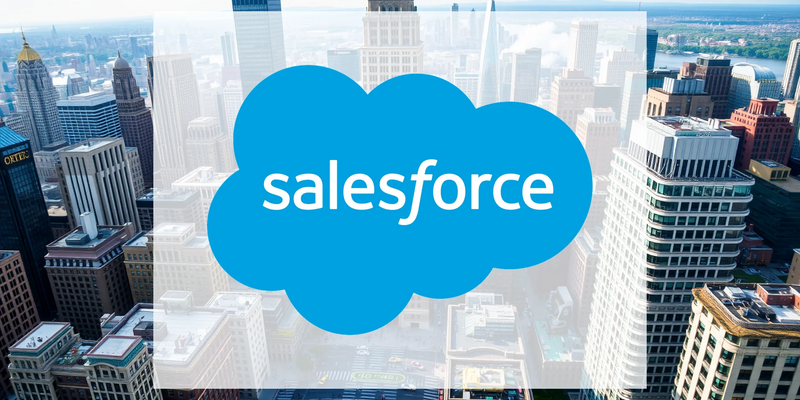Salesforce’s AI Transformation Gains Momentum
27.10.2025 - 17:18:04Strategic Shift Toward Consumption-Based Pricing
The cloud computing behemoth appears to be staging a remarkable recovery after months of declining performance. Salesforce's recent Dreamforce conference revealed a surprisingly coherent growth narrative that has quieted many skeptics, though questions remain about whether the company can deliver on its ambitious targets.
At the core of Salesforce's revitalized approach is Agentforce, the company's artificial intelligence platform that has generated over $100 million in annual revenue since its October 2024 launch. This impressive start to Salesforce's AI offensive comes as CEO Marc Benioff directly counters criticism, dismissing concerns that AI might replace traditional software as "nonsense."
Notably, the company has implemented a strategic departure from its traditional licensing model by adopting consumption-based pricing for Agentforce. Major enterprise clients including Dell, Williams-Sonoma, and FedEx have reported positive experiences with the technology, providing early validation of this approach.
Ambitious Growth Targets Outpace Expectations
Salesforce has committed to returning to double-digit organic growth rates, projecting over 10 percent annual expansion through 2030. This outlook exceeds analyst expectations, as does the company's announced revenue target of $60 billion by 2030, which surpasses the consensus estimate of $58.37 billion.
CFO Robin Washington acknowledged the company's recent challenges with unusual candor: "We went through a period of lower growth. That's accelerating again now." This admission underscores how significantly the organization felt the impact of its recent growth slowdown.
Should investors sell immediately? Or is it worth buying Salesforce?
Introducing the "Rule of 50" Metric
Salesforce has established a new performance benchmark called the "Rule of 50," which requires the sum of its adjusted operating margin and subscription revenue growth to reach at least 50 percent by 2030. This metric demonstrates the company's determination to balance expansion with profitability—a clear response to activist investor pressure from 2022.
The potential $8 billion acquisition of Informatica, expected to close in the fourth quarter or early 2027, represents another factor that could influence these targets, though its precise impact remains uncertain.
Divided Analyst Sentiment
Market experts remain divided on Salesforce's prospects. While CNBC's Jim Cramer enthusiastically praises the return of "the old Salesforce," D.A. Davidson analyst Gil Luria maintains a more cautious stance. Luria warns that "the 2030 targets are ambitious" and questions how they can be achieved without improvement in market conditions.
This skepticism is understandable given the stock's nearly 30 percent decline in 2025, driven largely by concerns that artificial intelligence might threaten the software-as-a-service business model. However, recent developments suggest a potential trend reversal may be underway.
The critical challenge facing Salesforce remains whether the company can successfully navigate the transition between its established core business and the emerging AI era. The strategic direction has been established—now execution will determine the outcome.
Ad
Salesforce Stock: Buy or Sell?! New Salesforce Analysis from October 27 delivers the answer:
The latest Salesforce figures speak for themselves: Urgent action needed for Salesforce investors. Is it worth buying or should you sell? Find out what to do now in the current free analysis from October 27.
Salesforce: Buy or sell? Read more here...


